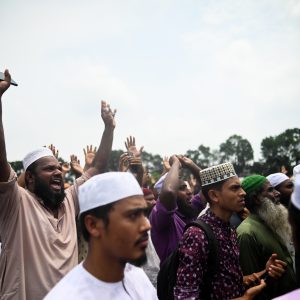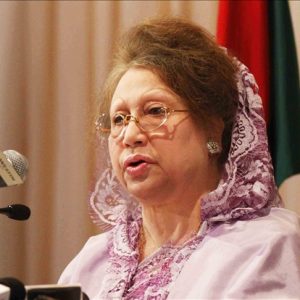Report reveals alarming use of laws to suppress dissent in France
Since October 2023, activists and civil rights groups have reported a surge in legal actions criminalizing expressions of solidarity with Palestine
PARIS, France (MNTV) — A new report highlights a troubling crackdown on activists and organizations supporting the Palestinian cause in France, raising concerns over the suppression of dissent under counterterrorism laws.
A detailed investigation by Jacobin magazine reveals that authorities have increasingly used legal measures to silence free-Palestine voices, with critics warning of an authoritarian drift.
Since October 2023, activists and civil rights groups have reported a surge in legal actions criminalizing expressions of solidarity with Palestine.
President Emmanuel Macron’s government has come under growing scrutiny for restricting civil liberties, particularly through the controversial application of laws prohibiting “apologia for terrorism.”
Critics argue these measures disproportionately target left-wing activists and human rights defenders, effectively curbing free speech.
Among the most high-profile cases is that of Anasse Kazib, a trade unionist facing trial for social media posts in support of Palestinian resistance.
If convicted, he could face up to seven years in prison and a €100,000 fine. Kazib and his supporters condemn the prosecution as politically motivated, aimed at intimidating progressive voices.
His lawyer, Elsa Marcel, has denounced the laws as “arbitrary” and warned of their potential misuse against political opposition.
Observers note that pro-Israel lobby groups, such as the French Jewish Youth (JFJ), have played a significant role in these legal actions, reportedly filing numerous complaints against leftist figures and organizations.
Critics argue that JFJ’s activities align with far-right narratives, contributing to a broader climate of repression.
The crackdown has extended to organizations as well, with civil rights groups like the Collective Against Islamophobia in France (CCIF) being banned under counterterrorism measures.
Human rights advocates say these actions reflect a pattern of state repression, including bans on critical civil society groups and increased police surveillance.
International watchdogs and legal experts warn that such policies set a dangerous precedent, undermining democratic freedoms.
Solidarity campaigns have gained momentum, with intellectuals and public figures framing Kazib’s trial as a test case for free expression in France.
As criticism mounts, activists stress the urgent need to defend fundamental rights against what they see as a widening assault on dissent.
They argue that beyond individual prosecutions, the crackdown represents a broader shift towards authoritarian governance in the country.







